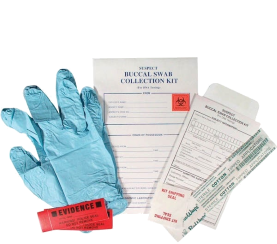
State Police say all 1,100 untested sexual assault evidence collection kits have now been tested
By Eric Valentine
Idaho State Police Forensic Services (ISPFS) says it has reached a major milestone in the five-year effort to test all sexual assault evidence kits in Idaho. The last previously untested sexual assault kit in Idaho identified as needing and eligible for testing during a 2016 audit has been completed.
The final test means all kits identified in the 2016 audit as needing to be submitted to the lab, or already in the lab at that point, have now been completed, with reports provided to investigators and prosecutors, and any hits in the National DNA Index System (CODIS) provided to local law enforcement for further follow-up.
“This is a major step in building trust among sexual assault survivors, for assisting law enforcement, and providing critical information to policymakers,” said Matthew Gamette, laboratory system director of Idaho State Police Forensic Services. “Overall, the completion of these previously unsubmitted kits in Idaho is part of a bigger initiative to keep Idaho communities safe and combat the crime of sexual assault.”
The State Police say Idaho leads the nation in addressing the issue of ensuring the testing of sexual assualt kits. Specifically, ISPFS is leading the statewide multidisciplinary team that’s addressing culture change as it relates to investigation, prosecution, and treatment of sexual assault survivors. Idaho has:
Passed aggressive laws to test and retain evidence kits
Implemented the first fully functional statewide sexual assault kit tracking system
Worked to ensure that survivors of this crime are cared for
Using grant funding, ISPFS is working to ensure local communities have a coordinated effort, including specially trained nurses, to combat sexual assault and assist survivors. ISPFS is training medical providers in every Idaho community to better engage with and assist sexual assault survivors and helping coordinate local multidisciplinary teams intended to provide a comprehensive sexual assault response for the needs of both survivors and Idaho’s criminal justice system.
A Five-Year Undertaking
Leaders and activists sharply criticized the state for its daunting 1,100-kit backlog in recent years. And it should be noted a backlog still exists, although it’s more recent (up to August 2020) and more manageable now. ISP did not provide the specific number of bottlenecked kits currently. They did note that there has been an increase in submitted kits of 100 per year (365%) over the past two years and that the state uses a priority system to test the kits. That is, if there is an active investigation of, say, a serial rapist, they’d move those test kits to the front of the line.
“This project was a remarkable undertaking by the laboratory,” Gamette said.
About the Sexual Assault Kit, Tracking
The kits are a collection of physical evidence, including DNA samples, taken from sexual assault victims. Evidence collected can identify suspects or exonerate those wrongfully accused.
Prior to 2016, Idaho, like other states, had no statewide requirement on whether a sexual assault kit, once collected, had to be sent to a lab for processing. Nor was there any system to track the kits. However, following action by the Idaho Legislature in 2016, efforts have been underway to track and process all eligible kits and provide regular reports to the legislature and law enforcement.
As of this month, every evidence kit currently in existence in Idaho has now been entered into the kit tracking software developed in-house by ISP IT experts. This software, because of its efficiency, has been offered at no cost and is now in use by a number of agencies as others look to follow Idaho’s lead and improve their evidence-tracking system for the crime of sexual assault.
The Idaho sexual assault kit data is available in real-time on the public ISP website for public transparency and survivor information. Every kit collected in Idaho and any kit existing in the state of Idaho is accounted for in this system. ISPFS provides monthly and annual reports to the Idaho Legislature regarding the status of sexual assault kit tracking and processing in Idaho. ISPFS now has a full-time sexual assault kit tracking system coordinator to work with medical facilities, law enforcement agencies, and prosecutors to ensure the information in the kit tracking system is accurate.
The History of a Backlog
Number of untested kits in 2016: 1,100
State Law: Legislation passed in 2019 to direct ISP to test all evidence within 90 days
Current Backlog: All tests have been processed up to August 2020
Increase in submitted tests since 2019: 100+/- each year
